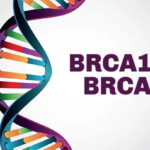Understanding your genetic makeup can be a powerful tool in preventing or managing serious health conditions. Among the most well-studied genes in cancer risk assessment are BRCA1 and BRCA2 genes. These two genes play a crucial role in maintaining healthy cell growth and DNA repair, but mutations in them can dramatically increase a person’s risk for certain types of cancers—particularly breast and ovarian cancer.
What Are BRCA1 and BRCA2 Genes?
BRCA1 (Breast Cancer gene 1) and BRCA2 (Breast Cancer gene 2) are human genes that produce proteins responsible for repairing damaged DNA. These tumor suppressor genes help maintain the genetic stability of cells. When either of these genes is mutated or altered, DNA damage may not be properly repaired, increasing the risk of cancer development.
Importantly, these gene mutations can be inherited, meaning they can be passed from parents to children. Both men and women can carry and pass on BRCA mutations, although the risks they face may differ.
How Do BRCA1 and BRCA2 Mutations Affect Cancer Risk?
People who inherit mutations in BRCA1 or BRCA2 have a significantly higher risk of developing certain types of cancer compared to those without mutations. The most common associated risks include:
- Breast cancer: Up to 72% lifetime risk for BRCA1 carriers and up to 69% for BRCA2.
- Ovarian cancer: Around 44% lifetime risk for BRCA1 carriers and 17% for BRCA2.
- Male breast cancer: Increased risk in BRCA2 carriers.
- Prostate and pancreatic cancers: Higher likelihood, particularly with BRCA2 mutations.
The presence of a BRCA1 or BRCA2 mutation does not guarantee the development of cancer, but it does indicate a much higher predisposition than the general population.
Who Should Consider BRCA Testing?
Genetic testing for BRCA1 and BRCA2 genes is generally recommended for individuals with:
- A strong family history of breast, ovarian, prostate, or pancreatic cancer
- Relatives who were diagnosed with cancer at a young age
- Known BRCA1 or BRCA2 mutations in the family
- Ashkenazi Jewish ancestry (higher prevalence of BRCA mutations)
- Personal history of early-onset breast cancer or multiple primary cancers
What Happens During BRCA Testing?
At Medgenome Labs, BRCA testing is performed using a simple blood or saliva sample. The DNA from this sample is analyzed to check for mutations in the BRCA1 and BRCA2 genes. The test results are reviewed by genetic counselors who help patients understand their risk and next steps.
Implications of a Positive or Negative Result
A positive result indicates the presence of a harmful mutation in one of the BRCA genes. This does not mean cancer is certain but suggests significantly increased risk. Based on this result, healthcare providers may recommend:
- Increased surveillance (e.g., more frequent mammograms or MRIs)
- Preventive surgeries (like mastectomy or oophorectomy)
- Lifestyle changes or medications to lower cancer risk
A negative result means no mutation was found in BRCA1 or BRCA2. However, it does not rule out cancer risk entirely, especially if there is a strong family history of cancer not related to BRCA mutations.
Why Choose Medgenome Labs?
At Medgenome Labs, we offer advanced and reliable BRCA1 and BRCA2 genetic testing, with support from experienced genetic counselors. Our comprehensive reports provide clear insights to help patients and physicians make informed decisions about cancer risk management and prevention strategies.
Conclusion
The BRCA1 and BRCA2 genes play a critical role in understanding inherited cancer risks. Knowing your BRCA status can empower you to take proactive steps toward early detection and prevention. If you or a loved one has a family history of cancer, consider speaking to a healthcare professional about BRCA testing. At Medgenome Labs, we are committed to providing cutting-edge genetic diagnostics to help individuals take control of their health with confidence.

